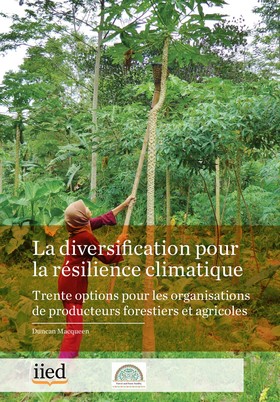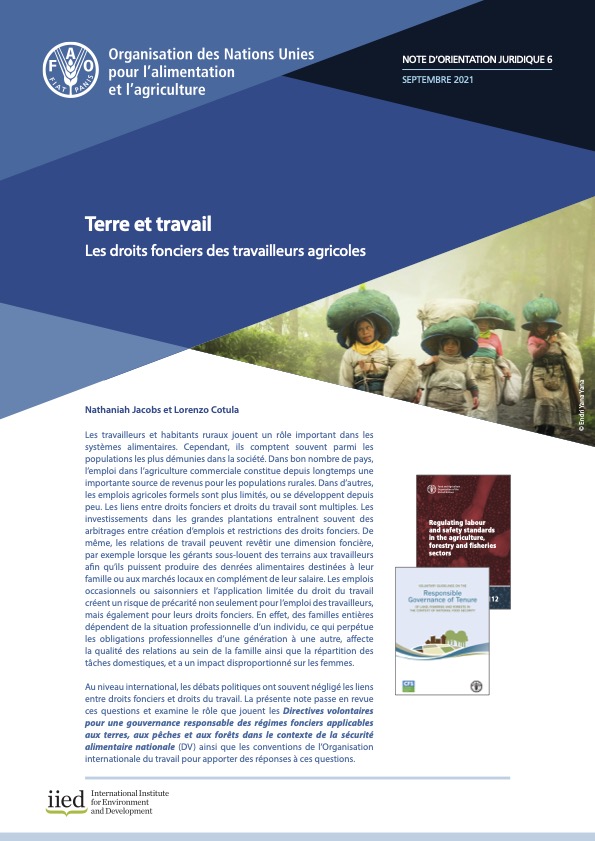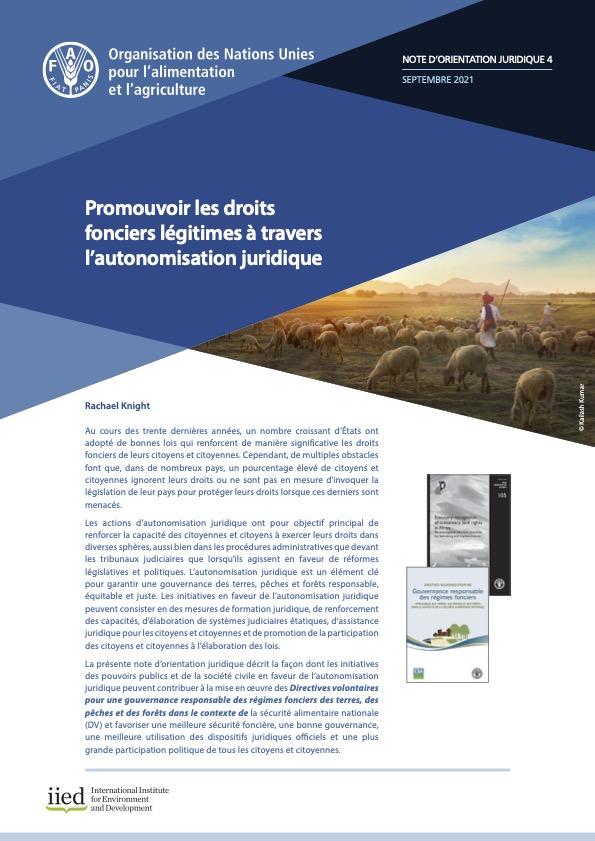Focal point
Location
Mission
Our mission is to build a fairer, more sustainable world, using evidence, action and influence in partnership with others.
Who we are
IIED is one of the world’s most influential international development and environment policy research organisations. Founded in 1971 by economist Barbara Ward, who forged the concept and cause of sustainable development, we work with partners on five continents. We build bridges between policy and practice, rich and poor communities, the government and private sector, and across diverse interest groups. We contribute to many international policy processes and frameworks, including the Intergovernmental Panel on Climate Change, the Millennium Ecosystem Assessment and the UN conventions on climate change and biological diversity.
What we do
IIED carries out research, advice and advocacy work. We carry out action research — generating robust evidence and know-how that is informed by a practical perspective acquired through hands-on research with grassroots partners — and we publish in journals and maintain high research standards. We advise government, business and development agencies, and we argue for changes in public policy. We focus on bottom-up solutions, stay open to flexible, adaptable solutions and are marked by a tradition of challenging conventional wisdom through original thinking.
Resources
Displaying 11 - 15 of 367Women claim their space in land governance
For the past few decades;efforts to strengthen women’s land rights in many sub-Saharan African countries have primarily focused on a single approach: systematic registration through individual/joint certification or titling. While registration – individually or with a spouse – may support tenure security in specific contexts;the sheer complexity of land governance practices and tenure arrangements across the continent (both formal and customary) often render an emphasis on systematic titling inadequate.
In her name: securing land tenure for women in Zambia
Presents a framework for tackling urban-rural land challenges. Designed to help a range of stakeholders in developing countries understand how to adopt an inclusive approach to land management and administration initiatives to produce a balance in urban and rural development. Provides structured guidance for addressing land-specific problems within the intersection of urban and rural development. Presents action-oriented steps and recommendations that should be pursued in urban-rural interdependent development.
La diversification pour la résilience climatique. Trente options pour les organisations de producteurs forestiers et agricoles
La résilience climatique mondiale est une question de vie ou de mort. Dans les paysages forestiers, 1,3 milliard de petits exploitants agricoles, de communautés et de peuples autochtones doivent organiser leur résilience climatique pour survivre. Du fait qu’ils sont coresponsables de la gestion d’une grande partie des forêts restantes et de l’approvisionnement alimentaire d’une nombreuse population pauvre à travers le monde, leur résilience est également essentielle aux solutions climatiques mondiales.
Les droits fonciers des travailleurs agricoles
Les droits fonciers et les droits du travail peuvent se croiser de multiples façons. Les investissements dans les plantations à grande échelle impliquent souvent des compromis entre la création d'emplois et la limitation des droits fonciers. De même, les relations de travail peuvent comporter des aspects liés aux droits fonciers, par exemple lorsque les gestionnaires des biens immobiliers sous-louent des parcelles aux travailleurs afin d’agrémenter les salaires par une production alimentaire pour leur famille ou les marchés locaux.
Promouvoir une élaboration participative de la législation pour la reconnaissance des droits fonciers légitimes
Au cours des trente dernières années, un nombre croissant d'États ont adopté de bonnes lois qui renforcent considérablement les droits fonciers de leurs citoyens. Cependant, en raison de multiples obstacles, un pourcentage élevé de citoyens de nombreux pays ignorent leurs droits légaux ou sont incapables d'utiliser les lois nationales pour protéger leurs droits lorsque ces derniers sont menacés.







